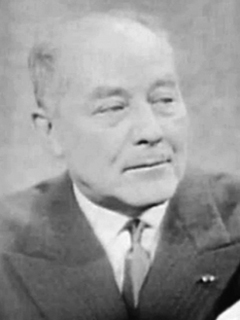
Publication details
Publisher: Springer
Place: Berlin
Year: 2010
Pages: 441-447
Series: Phaenomenologica
ISBN (Hardback): 9789048128303
Full citation:
, "Gaston Berger, Le cogito dans la philosophie de Husserl" Phaenomenologica 192, 2010, pp. 441-447


Gaston Berger, Le cogito dans la philosophie de Husserl
pp. 441-447
in: , The collected works of Aron Gurwitsch (1901–1973) I, Berlin, Springer, 2010Abstract
Applying the method of "historico-teleological" reflection or intentional analysis to the growth of Husserl's philosophy, Berger disengages predominant motives which, to be sure, are not elaborated and explicitly formulated before the final and definitive phase of Husserl's evolution (viz., that of transcendental phenomenology) is reached, but which may, and must, be discerned throughout the whole development of Husserl's thought, though, of course, in a more or less implicit, rather anticipatory and germinal form. The quest of an ultimate and absolute foundation and justification of knowledge, first of logical and mathematical knowledge, later of scientific knowledge at large and even of prescientific experience, has been a persistent occupation of Husserl. From his first beginnings in philosophy, Husserl turned to the realm of subjectivity for his foundation and justification. The problem is to account for the validity of knowledge and the objectivity of the objects of knowledge in terms of acts of consciousness through which the objects are apprehended and knowledge is constituted. It is to this orientation towards both the subjective and objective aspects of experience and knowledge that Farber also calls attention when, in his Foundation of Phenomenology,1 he speaks of the persistence of Husserl's "dual interest."
Cited authors
Publication details
Publisher: Springer
Place: Berlin
Year: 2010
Pages: 441-447
Series: Phaenomenologica
ISBN (Hardback): 9789048128303
Full citation:
, "Gaston Berger, Le cogito dans la philosophie de Husserl" Phaenomenologica 192, 2010, pp. 441-447



